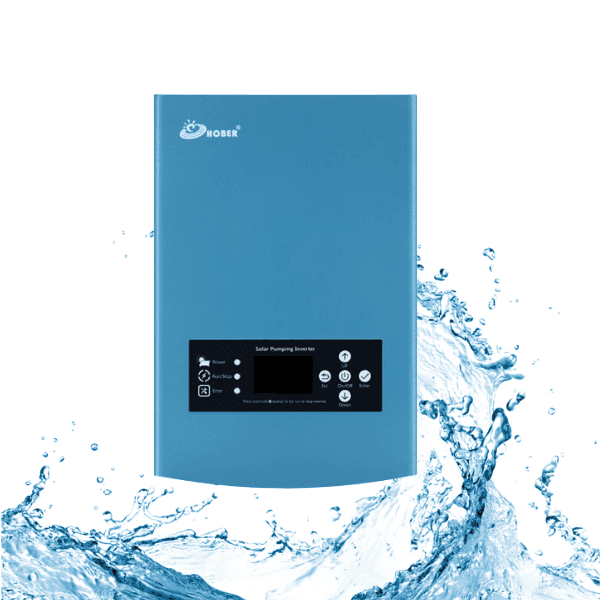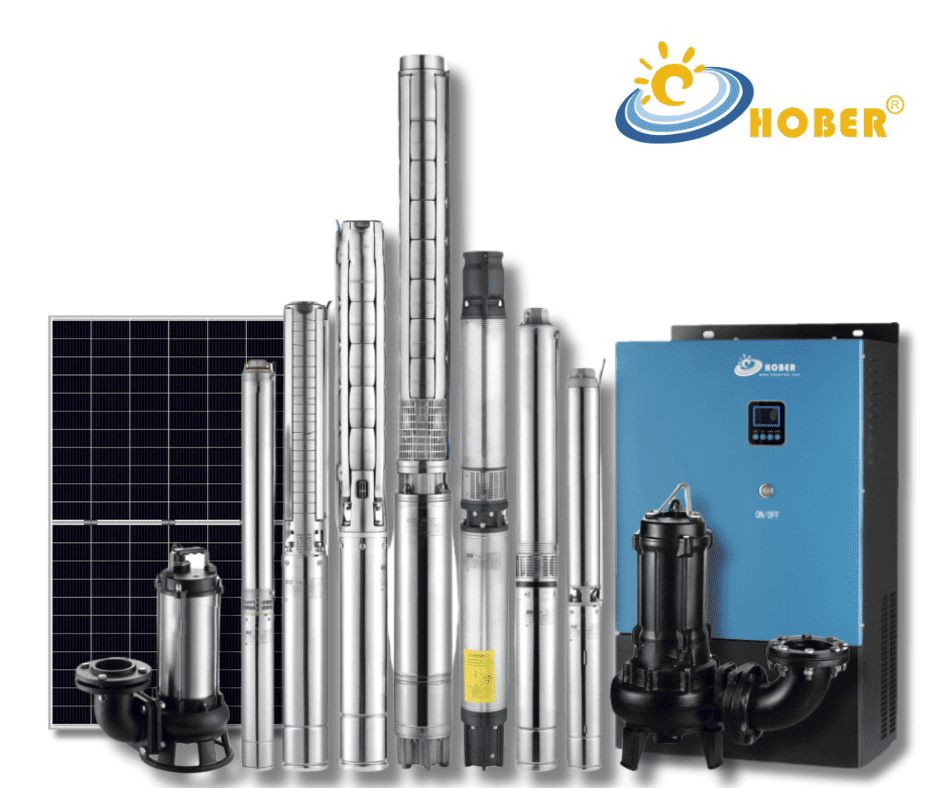1. Introduction
In today’s world, where renewable energy sources are becoming increasingly important, solar power stands out as a viable solution for various applications, including water pumping. Solar pump inverters are a key component in this setup, converting solar energy into usable electricity to run water pumps efficiently. This article explores how solar pump inverters work, the benefits they offer, and why they are crucial for anyone looking to implement a solar-powered water pumping system.

2. How Solar Pump Inverters Work
A solar pump inverter converts the DC power generated by solar panels into AC power, which is necessary for running most water pumps efficiently. This conversion is essential because most water pumps are designed to operate on AC power. The inverter not only ensures compatibility between the solar panels and the pump but also optimizes the energy usage through advanced technologies like Maximum Power Point Tracking (MPPT), which enhances the efficiency of the system.
3. Why Use Solar Power for Water Pumps?
Using solar power for water pumps offers numerous benefits, both environmentally and economically. Solar energy is a clean and renewable resource, reducing the reliance on fossil fuels and decreasing greenhouse gas emissions. For agricultural and rural applications, solar-powered water pumps can provide a reliable water supply without the need for grid electricity or fuel, leading to significant cost savings over time. Additionally, solar pump systems are particularly useful in remote areas where access to electricity is limited.
4. Can I Run a Water Pump on a Solar Inverter?
Yes, you can run a water pump on a solar inverter, but it’s important to consider several factors to ensure smooth operation. The type of pump, the capacity of the inverter, and the solar panel configuration all play critical roles. Submersible and surface pumps have different power requirements, and the inverter must be capable of handling the starting surge current, which is typically higher than the running current. Proper sizing of the inverter and solar panels is crucial to avoid system overloads and to ensure the pump operates efficiently.
5. What Size Inverter Do I Need to Run a Water Pump?
Determining the correct size of the inverter is key to ensuring the water pump operates effectively. The inverter’s capacity should be at least five times the pump’s power rating to handle the starting surge. For example, if you have a pump with a power rating of 1 kW, the inverter should have a capacity of at least 5 kVA. This calculation ensures that the inverter can handle the initial surge of current when the pump starts, as well as the continuous power required during operation.
6. The Hober Hybrid Solar Pump Inverter: Features and Benefits
The Hober Hybrid Solar Pump Inverter is an excellent choice for both submersible and surface pumps, offering robust performance and a range of advanced features:
- Strong Overload Capability: Capable of driving a 3-phase pump with a 1:1 horsepower ratio, making it versatile for various applications.
- Advanced Dynamic MPPT Function: With an efficiency of over 99%, the inverter maximizes the use of available solar energy, ensuring optimal performance even in varying sunlight conditions.
- Durable Design: The aluminum case with an IP65 rating allows for outdoor use in harsh environments, with effective heat dissipation to prevent overheating.
- Remote Monitoring and Management: The inverter supports RS232 and 4G/WIFI connections for remote monitoring through an app, providing real-time system management.
- Energy Complementarity: The system supports simultaneous input from the utility grid, diesel generators, and solar panels, with automatic switching to prioritize solar power.
- Comprehensive Protection: The inverter includes protections against undervoltage, overvoltage, overload, phase loss, pump dry running, short circuits, and overheating, ensuring the system’s safety and reliability.
7. Can I Run a Water Pump Straight from a Solar Panel?
While it might seem straightforward to connect a water pump directly to a solar panel, it’s generally not advisable. Most water pumps require AC power, which means a solar panel’s DC output needs to be converted by an inverter. Additionally, solar panels alone cannot provide the necessary starting surge current that pumps require. Without an inverter, you risk damaging the pump or having it run inefficiently, leading to reduced performance and possible equipment failure.
8. How Many Solar Watts Does It Take to Run a Water Pump?
The number of solar panels required to run a water pump depends on the pump’s power rating and the sunlight availability in the installation area. For instance, a 1 horsepower (HP) water pump typically requires around 1200 watts of solar power, which translates to about twelve 100-watt solar panels. The exact number can vary based on factors like the efficiency of the solar panels, the inverter, and the specific power requirements of the pump.
9. Installation and Maintenance of Solar Pump Inverters
Installing a solar pump inverter involves several steps, including selecting the right location, ensuring proper connections between the solar panels, inverter, and pump, and configuring the system for optimal performance. Regular maintenance is also essential to keep the system running smoothly. This includes cleaning the solar panels, checking the inverter for any faults, and ensuring the pump operates without interruptions. Proper installation and maintenance can significantly extend the lifespan of the system and improve its overall efficiency.
10. Common Challenges and How to Overcome Them
Using solar pump inverters can present challenges such as fluctuating solar power, inverter overloads, or compatibility issues with existing pumps. These challenges can be addressed by:
- Sizing the system correctly: Ensure that the solar panels, inverter, and pump are appropriately matched in terms of power requirements.
- Using advanced MPPT technology: This helps optimize the power output from the solar panels, especially in varying sunlight conditions.
- Implementing a backup power source: Having a secondary power source like a diesel generator can ensure continuous water supply even during periods of low sunlight.
11. Case Studies: Successful Solar Water Pump Installations
Several successful installations highlight the effectiveness of solar pump inverters, particularly the Hober Hybrid Solar Pump Inverter. For example, a farm in a remote area was able to achieve a 24-hour water supply by using the Hober inverter, which seamlessly switched between solar and grid power, ensuring the pump operated continuously without any downtime.
12. Conclusion
Solar pump inverters are a critical component in harnessing solar power for water pumping. They ensure that the DC power generated by solar panels is effectively converted to AC power, allowing for the efficient operation of water pumps. The Hober Hybrid Solar Pump Inverter, with its advanced features and robust design, offers a reliable solution for both submersible and surface pumps, making it an ideal choice for solar pump installers.
13. FAQs
Can I run a water pump on a solar inverter? Yes, but it’s important to consider factors like the pump type, inverter capacity, and solar panel configuration.
What size inverter do I need to run a water pump? The inverter should have a capacity of at least five times the pump’s power rating to handle the starting surge current.
Can I run a water pump straight from a solar panel? No, it’s generally not advisable as most pumps require AC power, which means you need an inverter to convert the solar panel’s DC output to AC.
How many solar watts does it take to run a water pump? A 1 HP water pump typically requires about 1200 watts of solar power, which equates to approximately twelve 100-watt solar panels.

